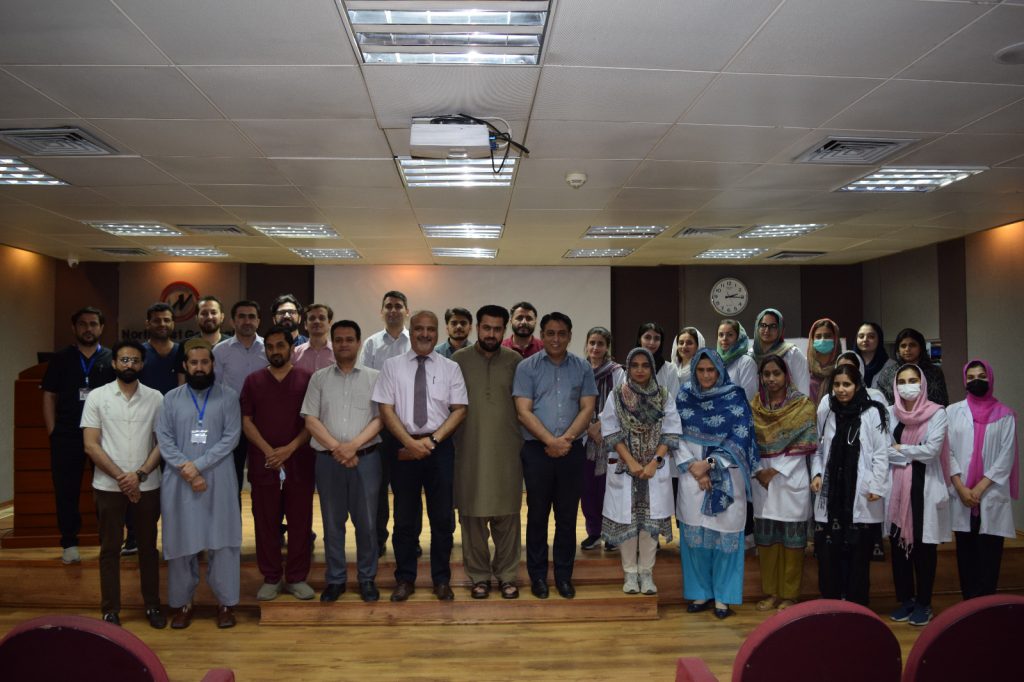MPED and Endocrinology Department Organize Symposium on “The Concept: Time in Range”
The Medical Professional Education Department (MPED), in collaboration with the Department of Endocrinology at Northwest General Hospital & Research Centre (NWGH & RC), successfully organized a one-day symposium titled “The Concept: Time in Range” on Wednesday, May 14, 2025. The event aimed to highlight the clinical significance and practical application of Continuous Glucose Monitoring (CGM) in optimizing outcomes for patients with diabetes.
The symposium featured insightful sessions by esteemed speakers Prof. Dr. Arshad Hussain (Consultant, Endocrinology & Diabetology) and Dr. Nizam Ud Din (Senior Registrar, Endocrinology), who elaborated on how CGM technology is revolutionizing diabetes care. Their presentations underscored the importance of Time in Range (TIR)—the percentage of time a patient’s glucose levels remain within the target range of 70–180 mg/dL—as a critical metric for evaluating glycemic control.
Participants were also introduced to other key CGM-derived indicators such as Time Below Range (TBR) and Time Above Range (TAR), which detect episodes of hypoglycemia and hyperglycemia respectively. Additional metrics, including the Glucose Management Indicator (GMI) and Coefficient of Variation (CV), were discussed to provide a more comprehensive understanding of glucose trends and variability.
A major highlight of the event was the interactive hands-on workshop. Attendees engaged directly with CGM devices, practiced interpreting real-time data, and learned practical strategies for incorporating CGM technology into clinical practice. The real-time data and alerts offered by CGM systems enable healthcare providers to detect sudden glucose fluctuations and take timely corrective actions, leading to improved glycemic control and reduced risk of diabetes-related complications.
The symposium also emphasized the value of CGM in promoting shared decision-making between patients and healthcare professionals. With access to real-time feedback, patients are empowered to make informed decisions about their lifestyle, including dietary choices, stress management, and physical activity, ultimately leading to better disease management.
The event was well-attended by house officers, postgraduate trainees, senior registrars, and clinicians, who appreciated the balanced approach of combining theoretical knowledge with practical skill-building.
MPED remains committed to advancing medical education and fostering continuous professional development, ensuring that healthcare providers stay at the forefront of evidence-based clinical practices.

